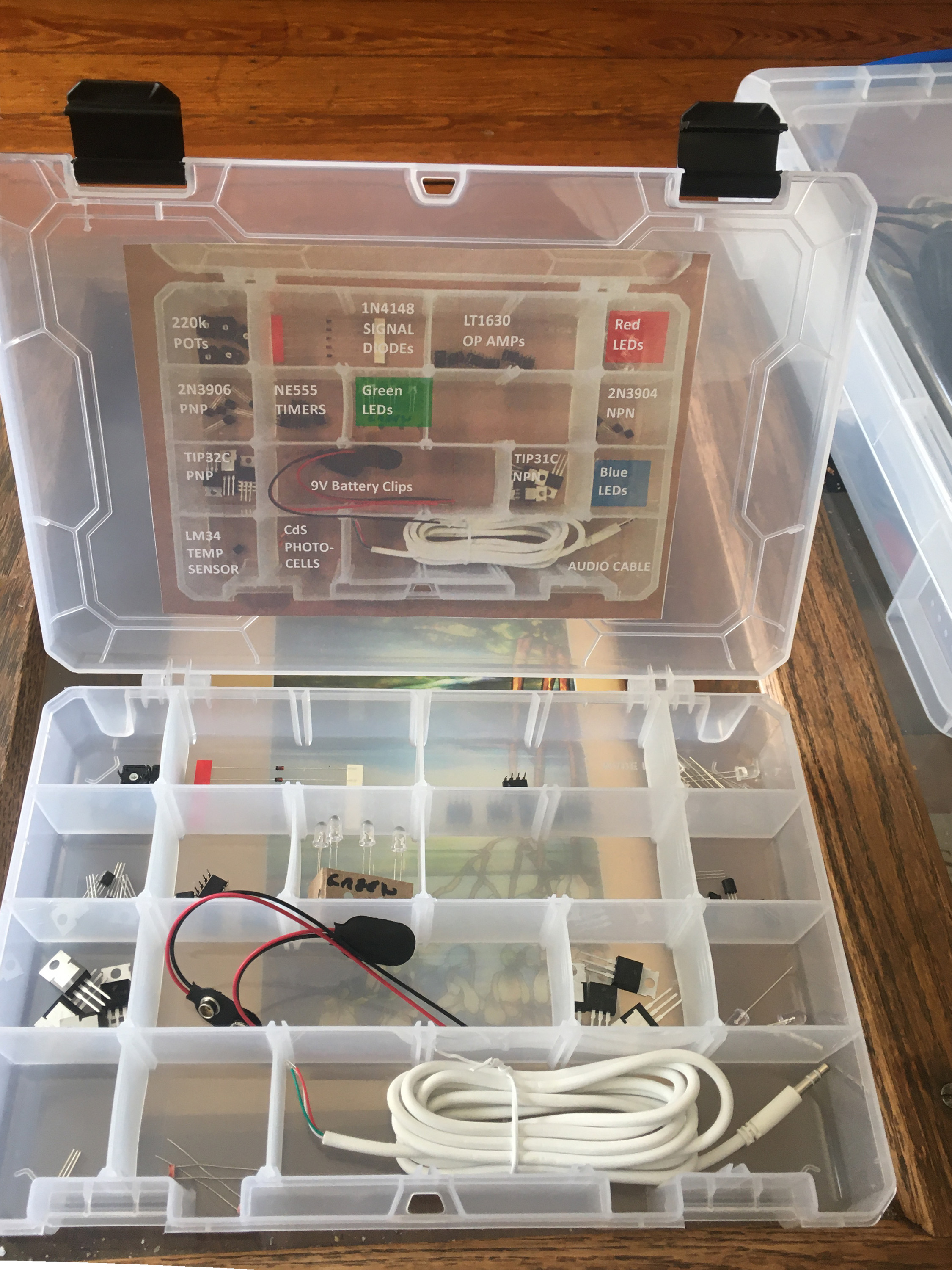6.070: Electronics Project Lab

Jim Bales, PhD ’91, is a firm believer that electronics can be fun. So while most introductory electronics courses focus on analysis, Bales, the associate director of the Edgerton Center, designed the elective seminar 6.070 (Electronics Project Lab) to give students a chance to dive right into making circuits—and develop an intuition for what they do.
When he learned that the second half of the semester would be remote, Bales knew he had to improvise to keep his students engaged. While parts like resistors and integrated circuits were cheap, he couldn’t send each of the 11 students in the class home with the $800 worth of equipment they’d normally be using to test their circuits in the lab. He hunted online and found a testing device less than three inches square that plugs into a computer’s USB port—and whose wires can be attached to a circuit in various combinations, making it act as an oscilloscope, function generator, power supply, or voltmeter. Professor Karl Berggren, the Course 6 undergraduate laboratory officer, saw the potential for using the devices in future classes and agreed to fund the purchase (at about $180 each) if Bales would write up a report on how it worked to use the devices for the class.

Bales then put in a flurry of orders for resistors, capacitors, ICs, transistors, diodes, and other miscellaneous parts required for building circuits, along with plastic bins to hold them. He and his wife and teenage daughter spent the weekend of March 14 and 15 sorting and packing all 4,238 components into kits that he FedExed to the students, asking them to return the USB test device at the end of the semester. (The rest of the kit is theirs to keep.)
“With the kit, I was able to build circuits with alternating currents, experiment with components, and get the same learnings as I did in the classroom,” says Kevin Yu, a master’s student in the Integrated Design & Management program, who received his kit at his apartment in Central Square. “It is almost like having a piece of the lab at home.”
Keep Reading
Most Popular
Large language models can do jaw-dropping things. But nobody knows exactly why.
And that's a problem. Figuring it out is one of the biggest scientific puzzles of our time and a crucial step towards controlling more powerful future models.
How scientists traced a mysterious covid case back to six toilets
When wastewater surveillance turns into a hunt for a single infected individual, the ethics get tricky.
The problem with plug-in hybrids? Their drivers.
Plug-in hybrids are often sold as a transition to EVs, but new data from Europe shows we’re still underestimating the emissions they produce.
Stay connected
Get the latest updates from
MIT Technology Review
Discover special offers, top stories, upcoming events, and more.